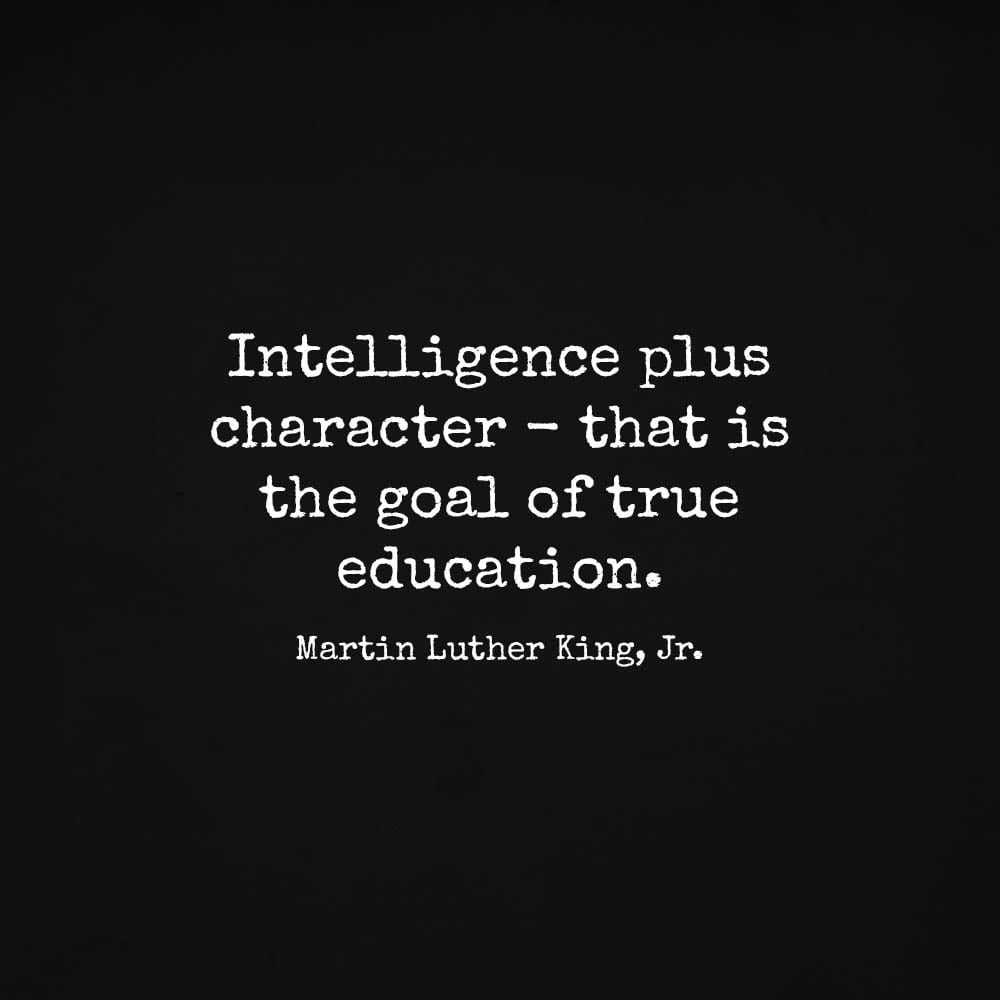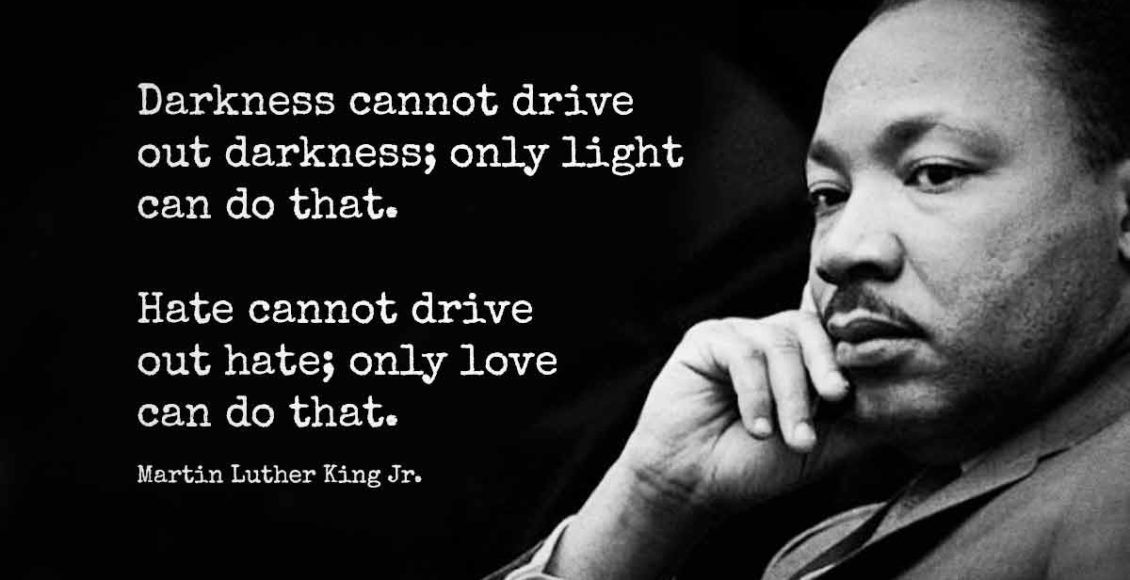Few names in world history evoke feelings of instant appreciation and respect as strong and deep as that of Martin Luther King, Jr.
The man who was to become one of the most influential African American speakers and civil rights leaders in the USA came to this world on January 15th, 1929 as the middle child of Reverend Martin Luther King Sr. and Alberta Williams King.
First encounter with segregation
King experienced the negative effects of segregation at an early age. When he was a child, his best friend was a white boy. When the two boys turned six, they were separated by the segregation system that was in place in the USA at that time.
By law, King was enrolled at a school for African Americans, and the other boy went to an all-white school. Consequently, King’s friendship with his white pal came to an end, as his parents did not want him to play with black children.
This experience sparked a fire inside Martin to resist segregation and struggle for equal rights for the black Americans that he described as “an inner urge to serve humanity.” What gave King strength to peacefully resist the established segregation laws and expose their flaws was his education, as well as his faith in God.
Early life and education
Growing up in Atlanta, Georgia, King attended Booker T. Washington High School, which at that time was one of the best all-black schools in the country. Endowed with verbal eloquence, Martin quickly got recognized as the best public speaker in his class. During his junior year, he even won a debate competition in Dublin, Georgia.
As he and his tutor were on the bus to Atlanta returning from the contest, the driver ordered them to offer their seats to some white passengers that were standing. King vehemently opposed the driver’s orders but was eventually talked into accepting them by his companion.
Looking back at the incident, he once said it made him feel “the angriest I have ever been in my life.”
Being an exceptionally gifted student, Martin Luther King Jr finished Booker T. Washington High School at the tender age of 15 and passed the admission exam to Morehouse College, a reputed historically black educational establishment.
1947 was an important year in Martin’s life because the young man, then just eighteen years old, chose to become a priest. He had concluded that in this way his voice would be heard and he would be able to serve his brothers and sisters in the best possible way.
The next year, King earned a Bachelor’s Degree in sociology from Morehouse and went to study at the Crozer Theological Seminary in Chester, Pennsylvania. In 1951 he earned his B.Div. agree (Baccalaureate in Divinity), followed by a Ph.D. in 1955.
King’s first victory
In the same year, a young black girl by the name of Rosa Parks was arrested for refusing to give up her bus seat to a white gentleman. The detention of the black woman, who’d later become known as “the first lady of civil rights,” unleashed a wave of social unrest and anger among the black community in Montgomery, Alabama, where the incident occurred, and led to a 381-day boycott of the bus service led by Martin Luther King Jr.
The boycott was King’s first won battle for equality, as it led to the abolishment of segregation on public transport vehicles in the state of Alabama.
I have a dream
The next important milestone in his life is the date August 28th, 1963, when King along with other civil rights leaders organized the March on Washington for Jobs and Freedom. On that day he delivered a lengthy, seventeen-minute speech, which later became known as “I Have a Dream”. This is one of the most inspiring speeches ever delivered on American soil.
On October 14, 1964, King won the Nobel Peace Prize for combating racial inequality through nonviolent resistance. He became only the third black Nobel Prize laureate in history after Ralph Bunche and Albert John Luthuli, and the youngest winner of the high distinction.
Because of his fierce opposition to the Vietnam War, King was put under surveillance by the FBI on suspicions of possible involvement with communist cells. Also, King’s anti-war views caused many of his influential friends to withdraw their support from him.
Last speech and assassination
The “I’ve Been to the Mountain Top” address, delivered roughly twenty-four hours before his assassination, is believed to be Martin Luther King Jr.’s swan song. Towards its end, King mentioned there had been threats against his life and clearly stated that he was not afraid to die.
At 6:01 p.m. on April 4, 1968, King was shot dead as he stood at the balcony of his room 306, which was on the second floor of the Lorraine Motel in Memphis Tennessee.
The motel where Martin Luther King Jr’s life was cut short by a ruthless assassin now houses the National Civil Rights Museum. King’s sudden death unleashed a tidal wave of anger and social turmoil across the United States.
A man by the name of James Earl Ray was charged with King’s assassination and was later convicted. He was sentenced to a total of 99 years. After spending 29 years in prison Ray died in his cell of hepatitis in 1998.
To this day, the death of Martin Luther King Jr. is shrouded in mystery. Conspiracy theorists suggest that James Ray was actually used as a scapegoat by the US government and that the name of the real perpetrator shall never be disclosed.
And even if the life of this great man was tragically cut short on the fourth day of April 1968, his powerful quotes will continue to inspire the future generations.
Below we have selected just twenty of them, but the list can easily be expanded to two hundred, or even two thousand!
1.Love is the only force capable of transforming an enemy into a friend. – Martin Luther King, Jr.
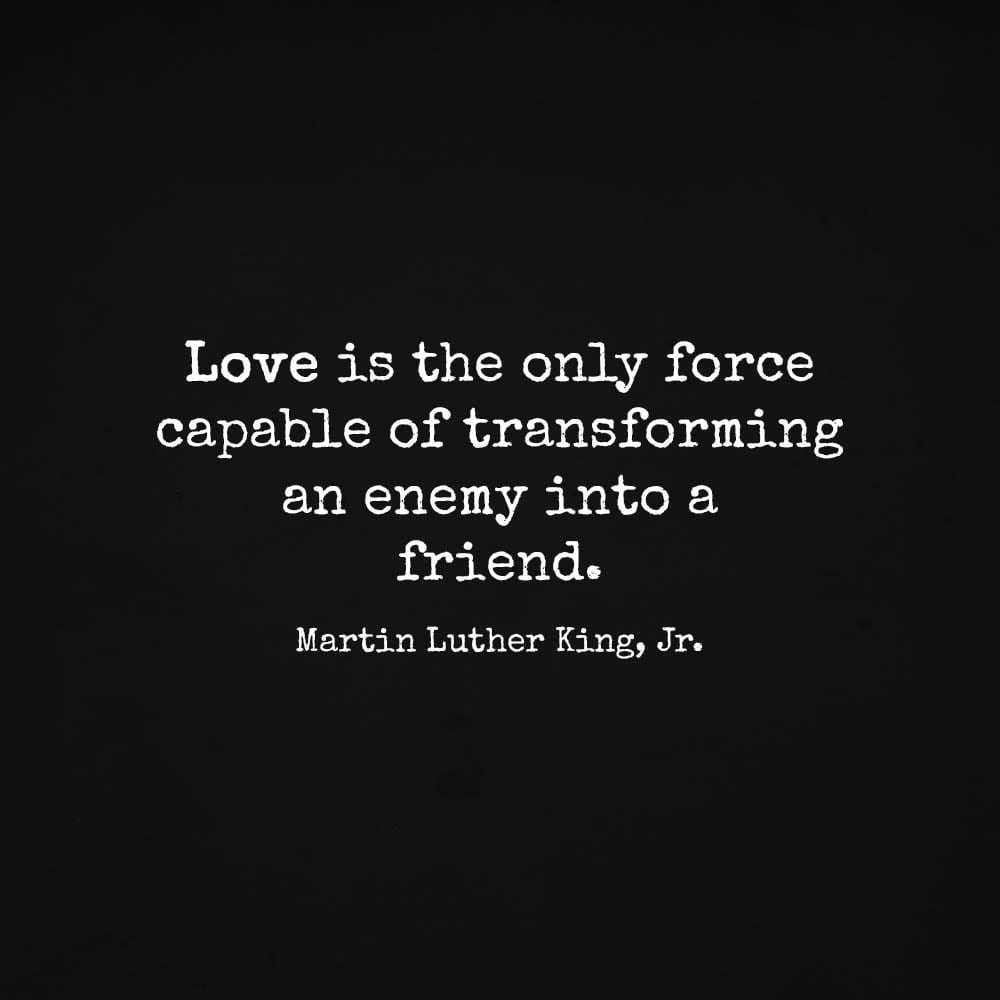
2.Nothing in the world is more dangerous than sincere ignorance and conscientious stupidity. – Martin Luther King, Jr.
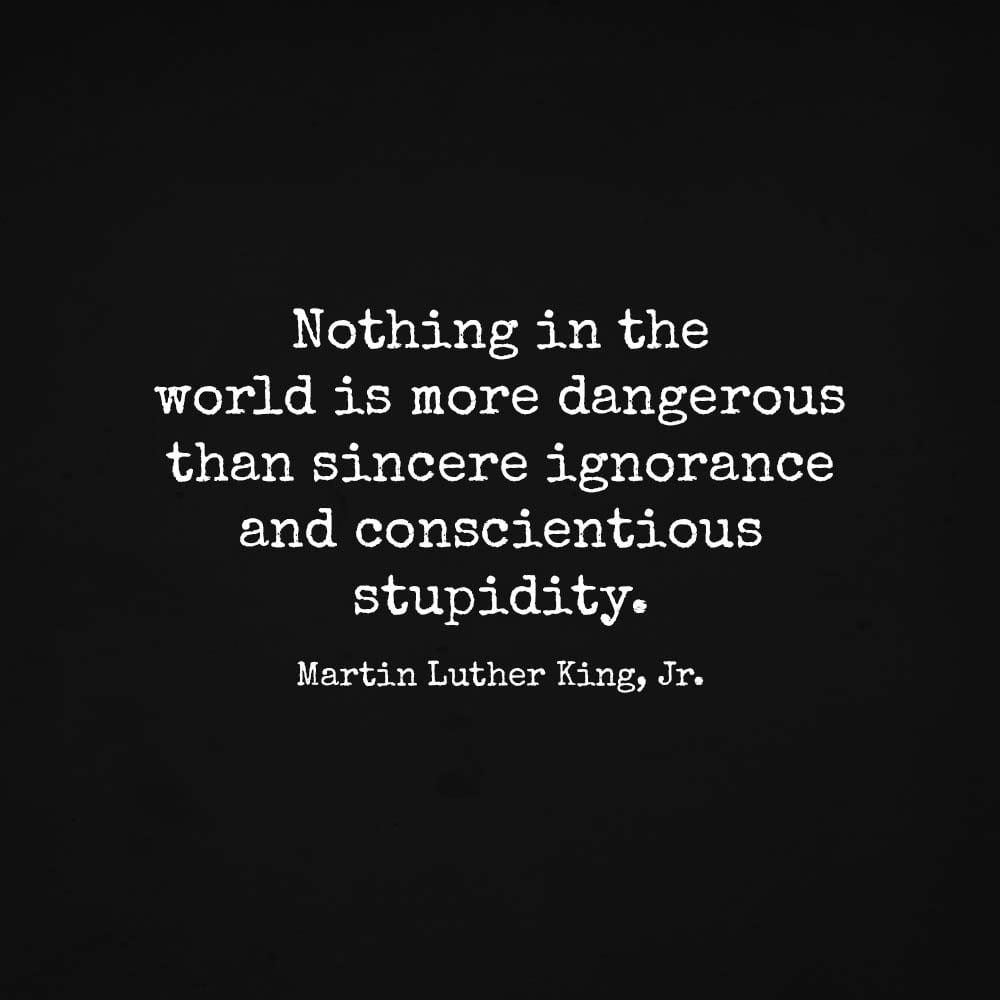
3.I have decided to stick to love…Hate is too great a burden to bear. – Martin Luther King, Jr.
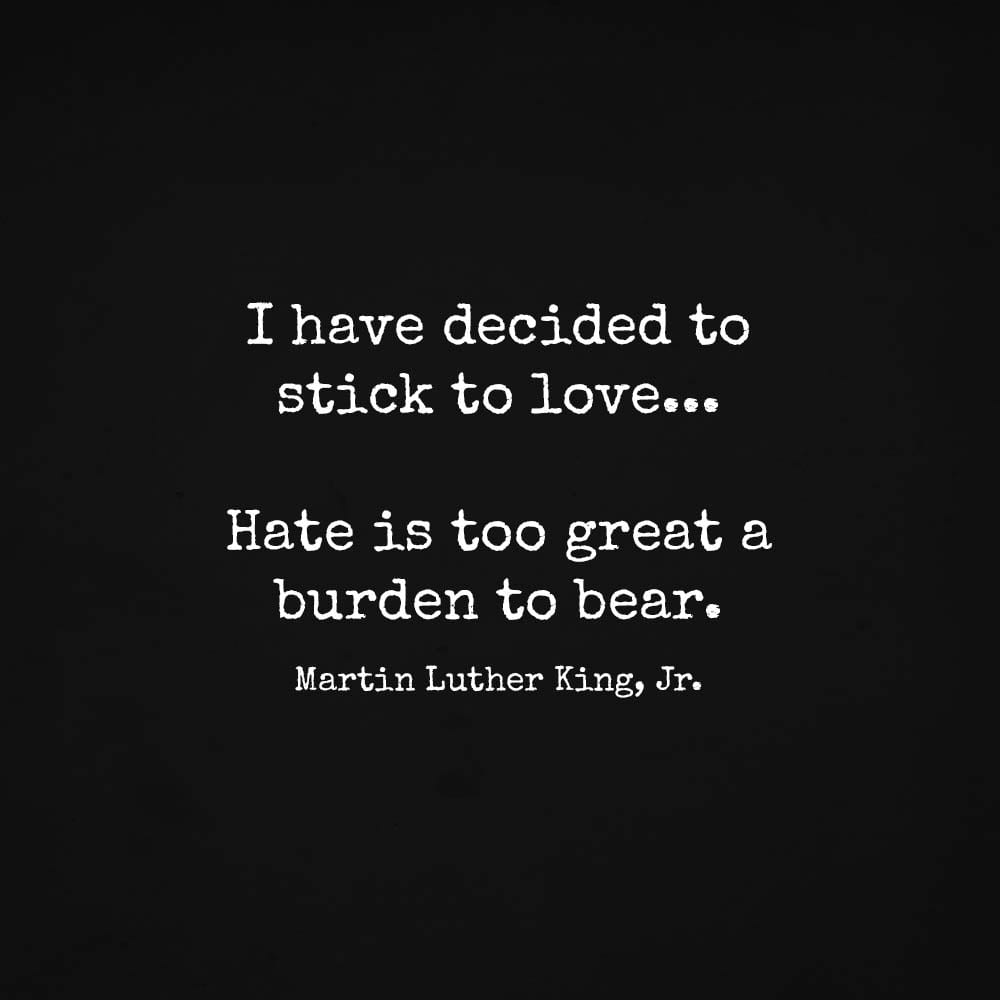
4.If you can’t fly, then run, if you can’t run, then walk, if you can’t walk, then crawl, but by all means, keep moving. – Martin Luther King, Jr.
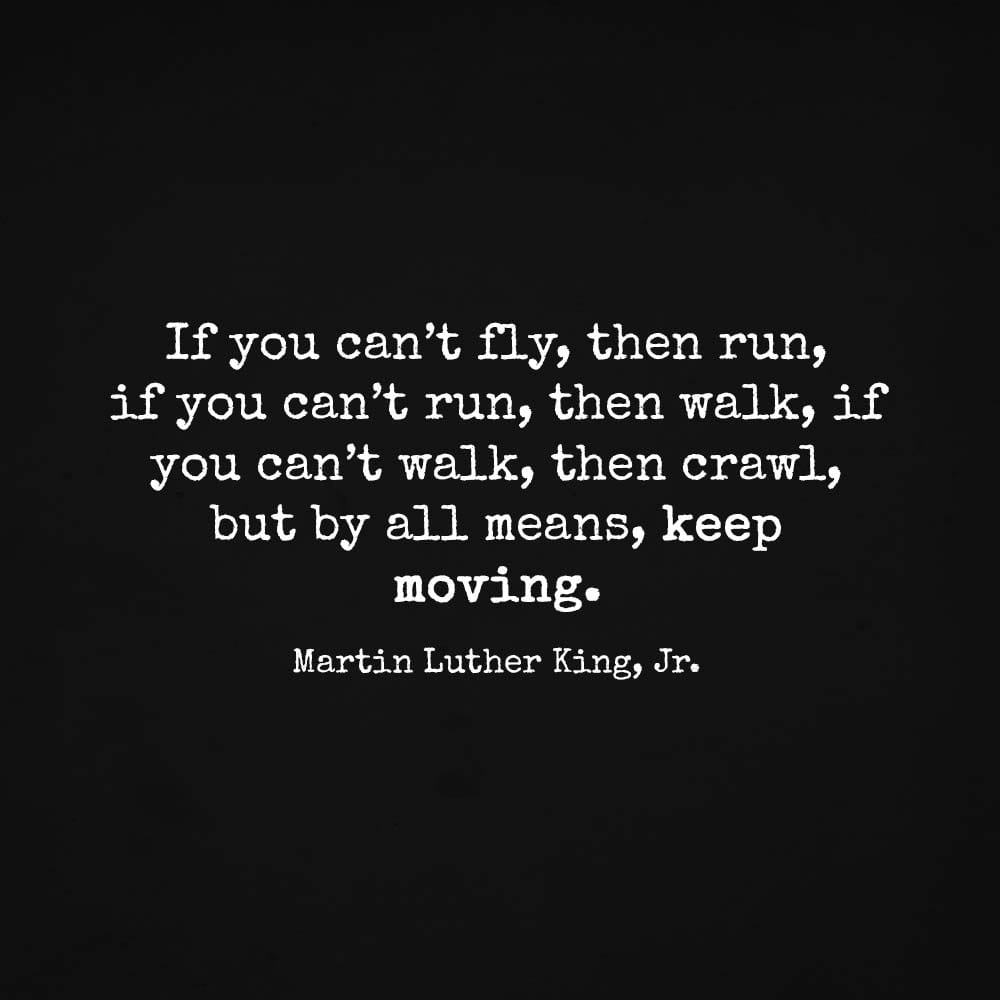
5.Faith is taking the first step even when you don’t see the whole staircase. – Martin Luther King, Jr.
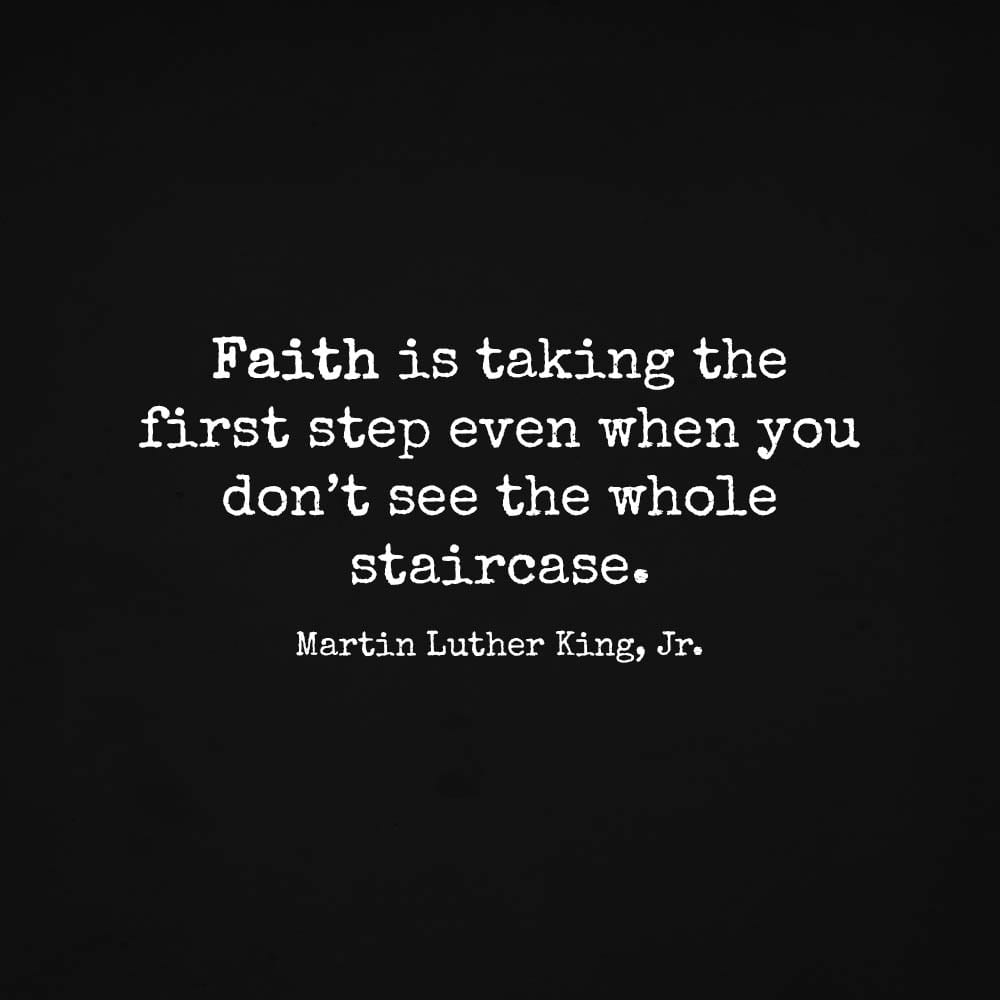
6.That old law about ‘an eye for an eye’ leaves everybody blind. The time is always right to do what is right. – Martin Luther King, Jr.
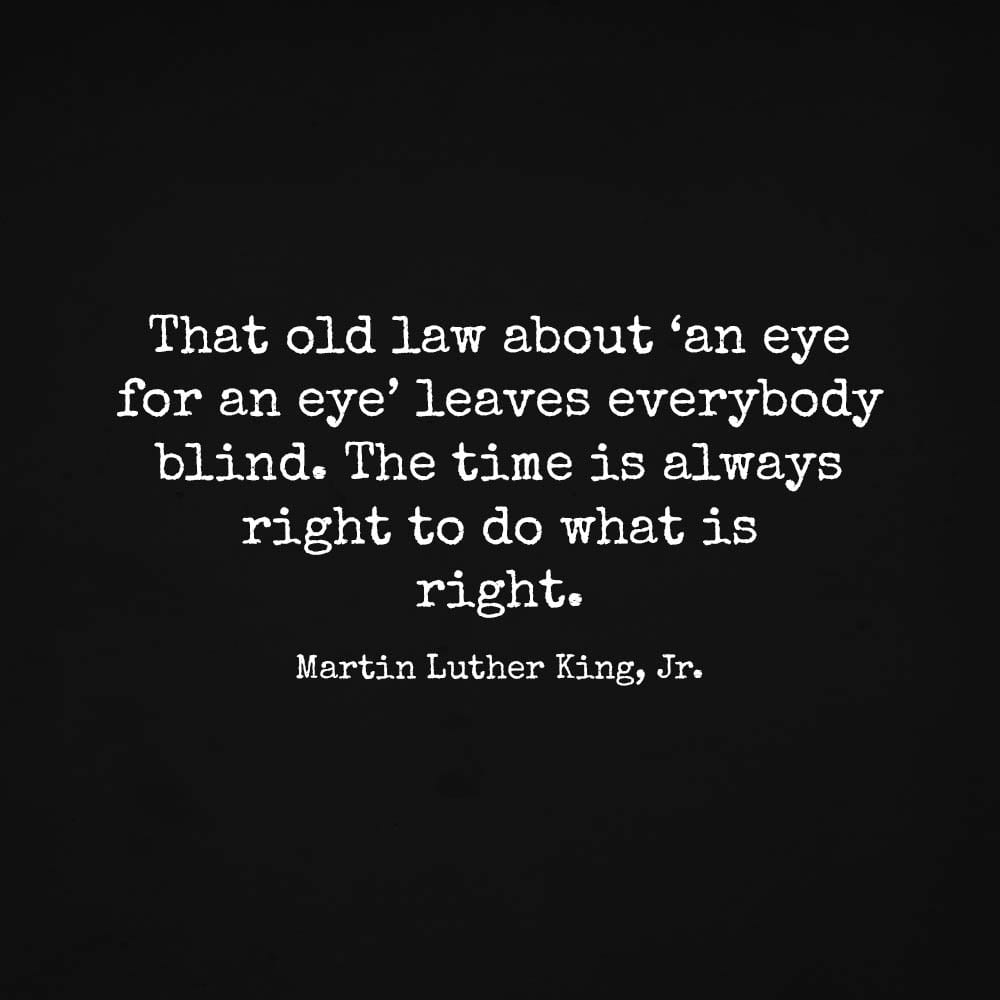
7.The ultimate measure of a man is not where he stands in moments of comfort and convenience, but where he stands at times of challenge and controversy. – Martin Luther King, Jr.
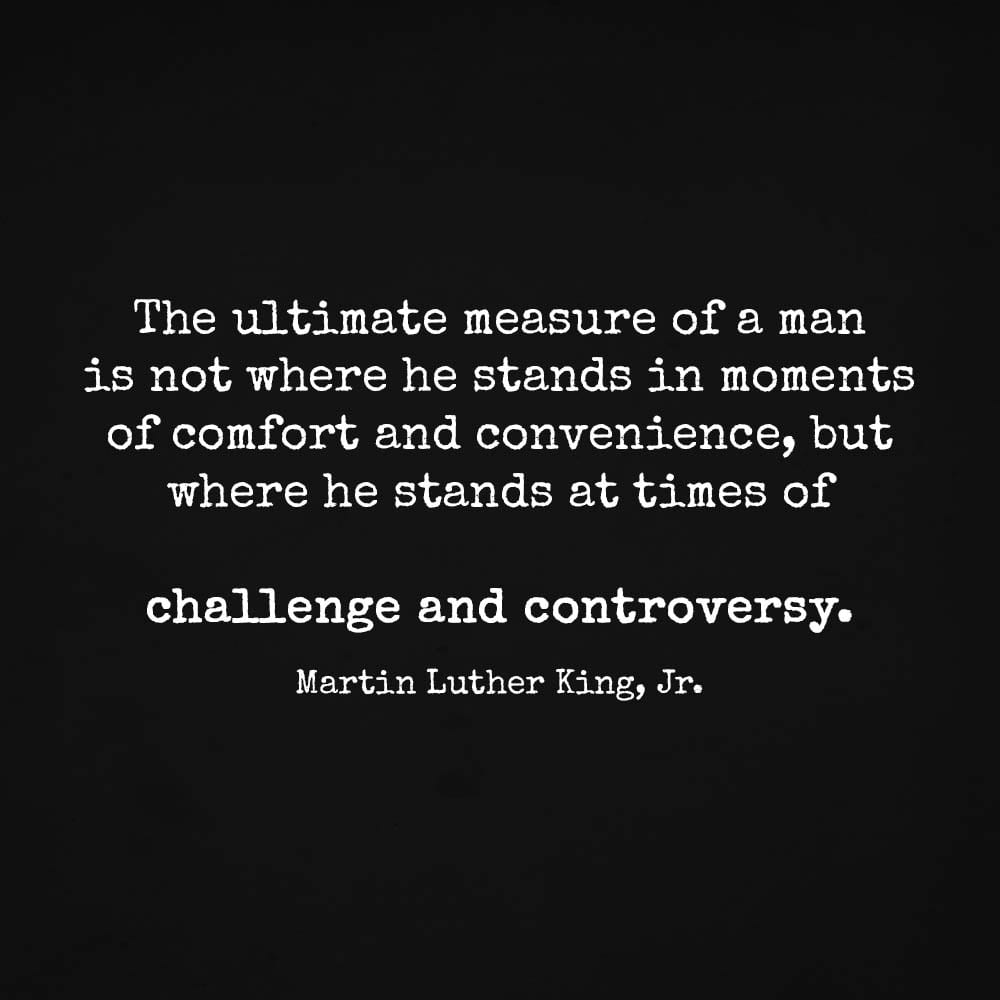
8.Darkness cannot drive out darkness; only light can do that. Hate cannot drive out hate; only love can do that. – Martin Luther King, Jr.
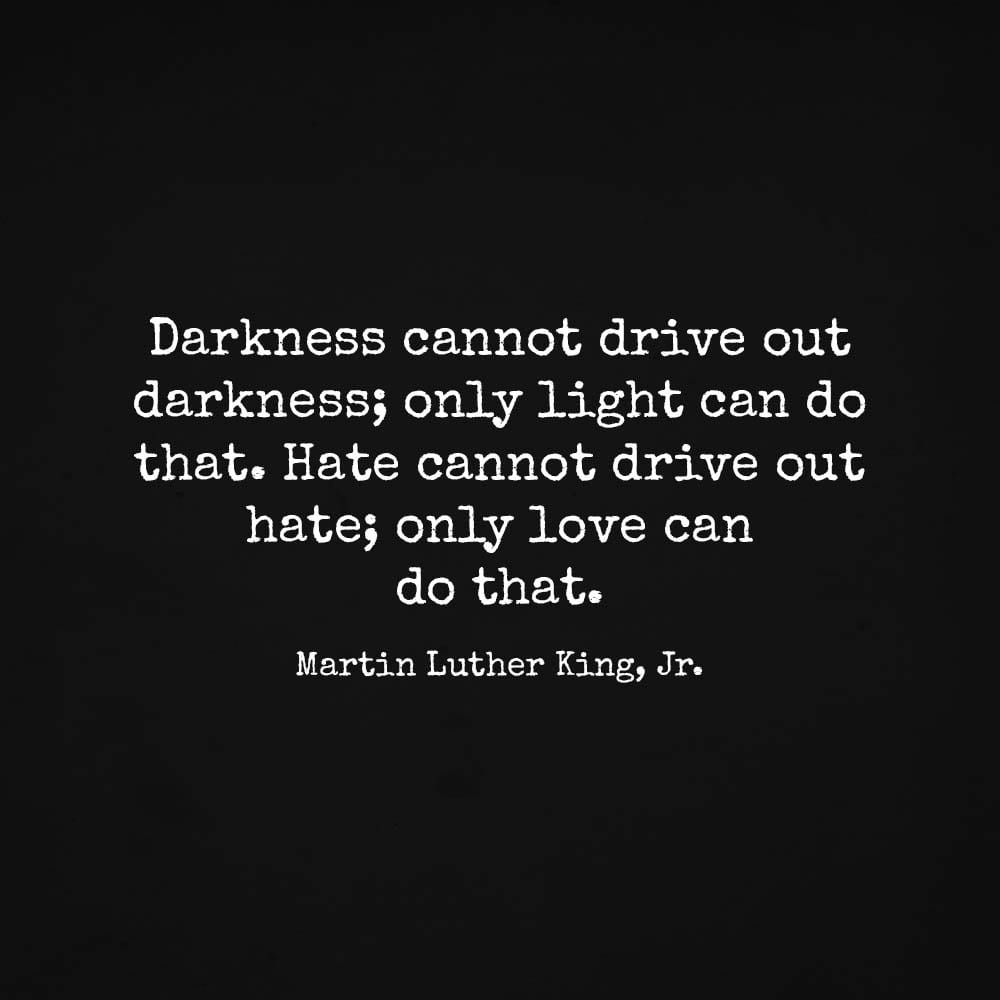
9.In the end, we will remember not the words of our enemies, but the silence of our friends. – Martin Luther King, Jr.
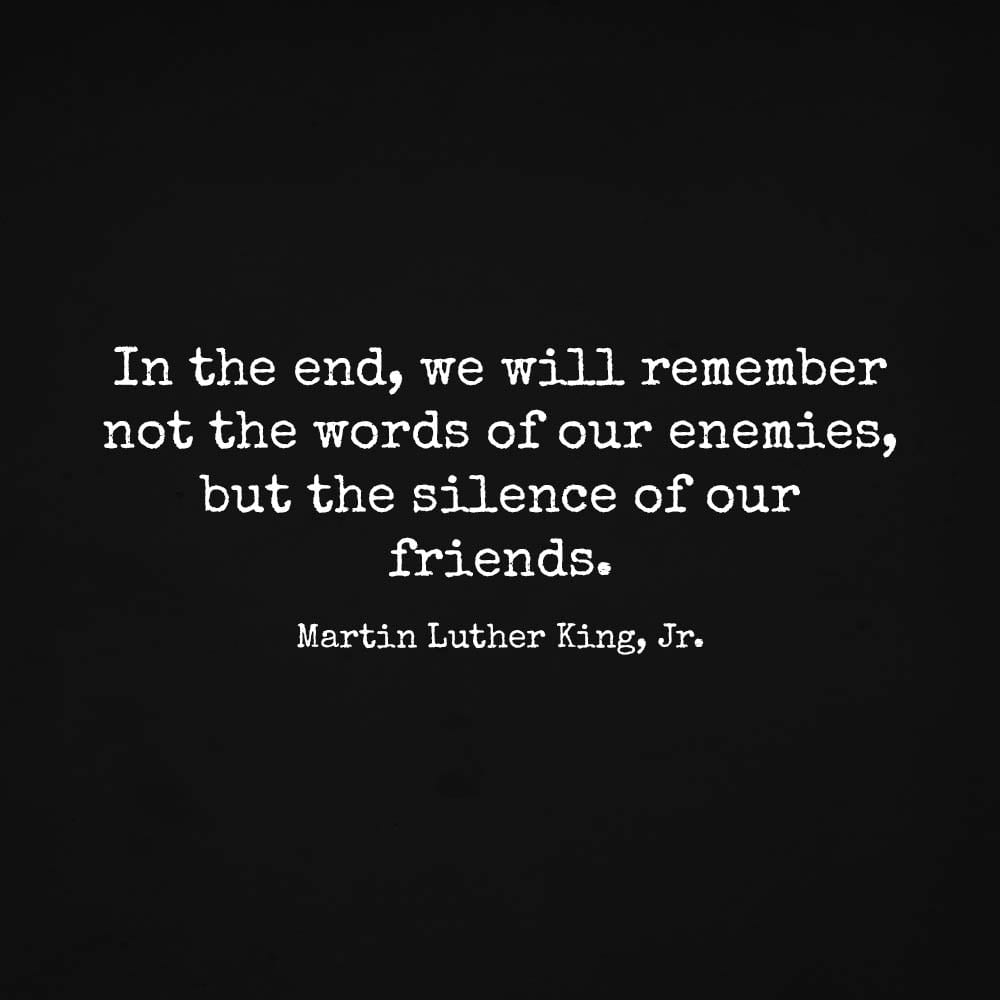
10.Every man must decide whether he will walk in the light of creative altruism or in the darkness of destructive selfishness. – Martin Luther King, Jr.
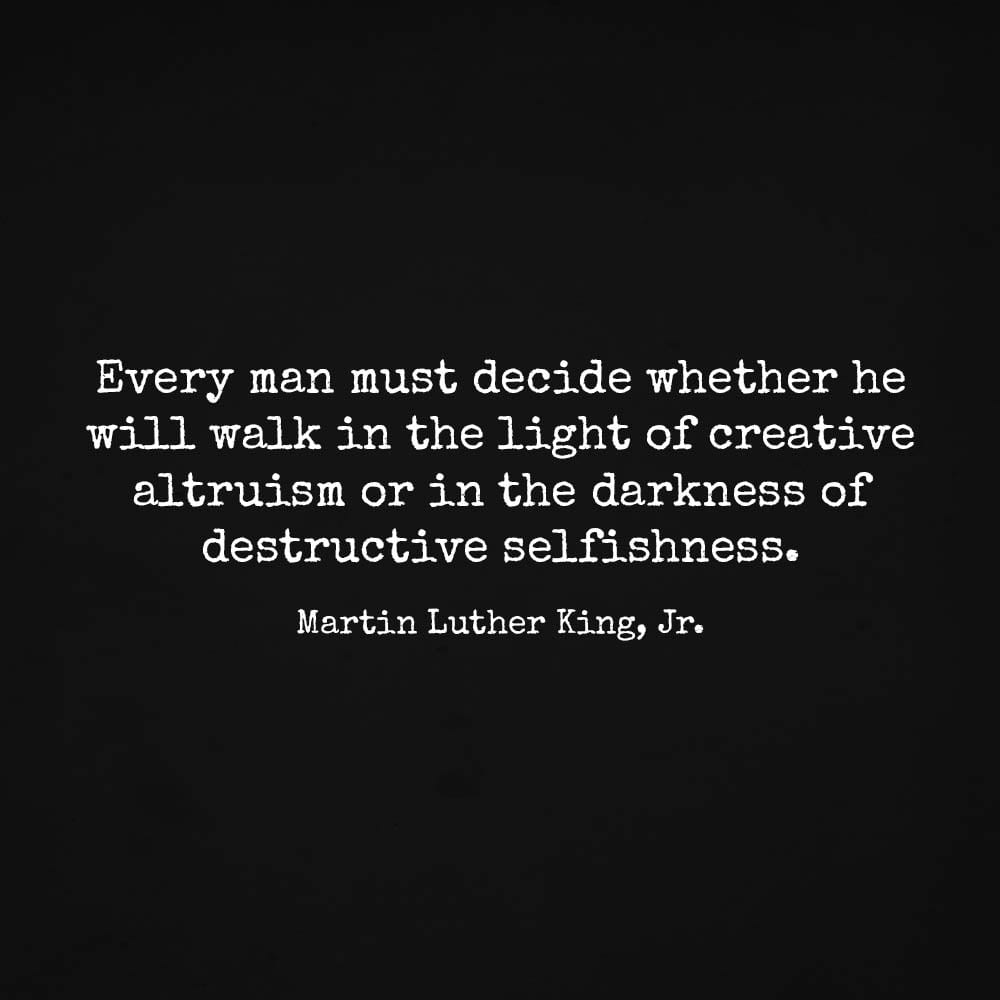
11.We may have all come on different ships, but we’re in the same boat now. – Martin Luther King, Jr.
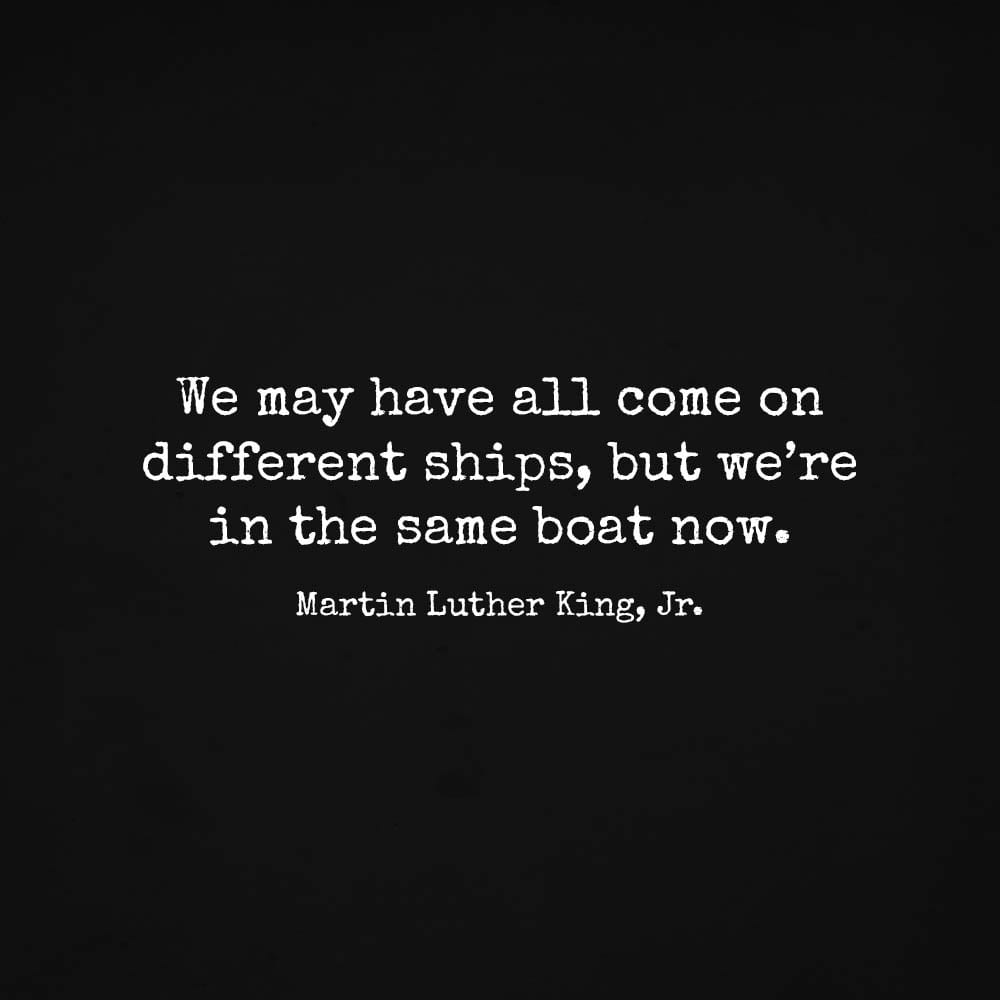
12.Our lives begin to end the day we become silent about things that matter. – Martin Luther King, Jr.
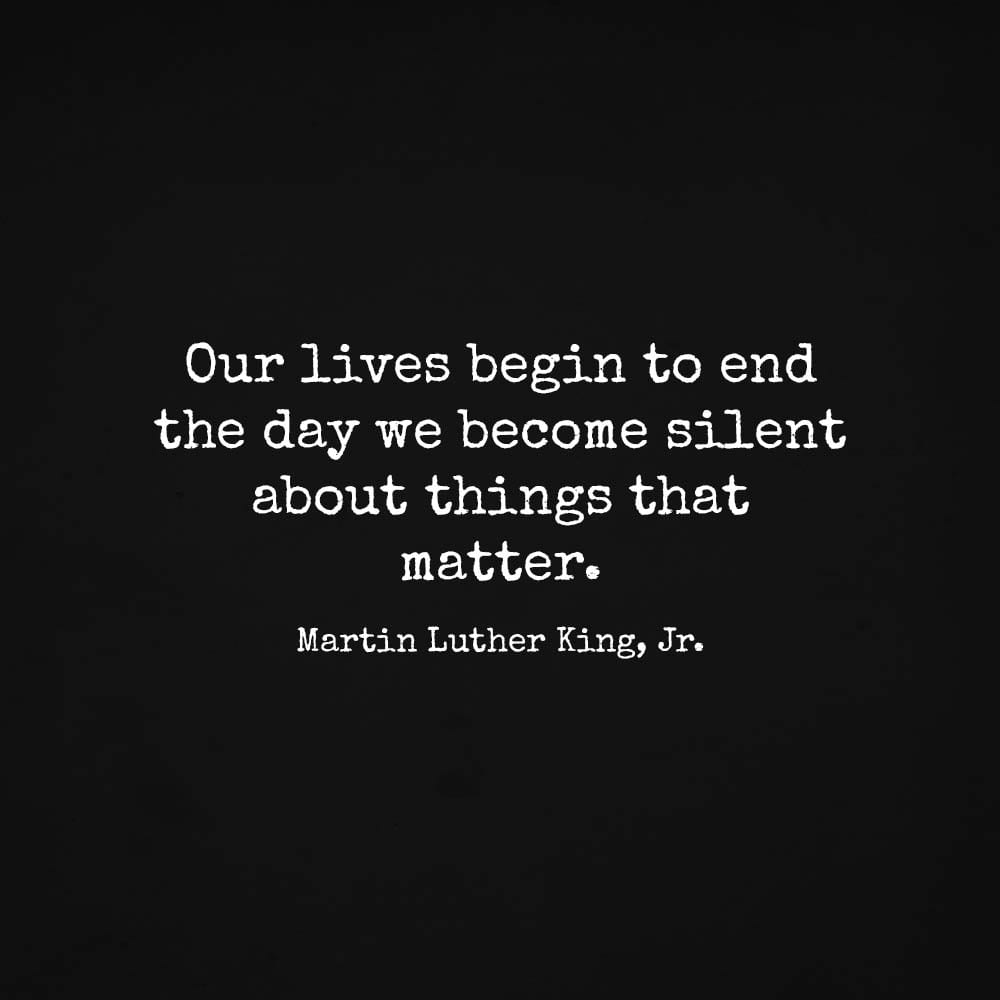
13.Life’s most persistent and urgent question is, ‘What are you doing for others?’ – Martin Luther King, Jr.
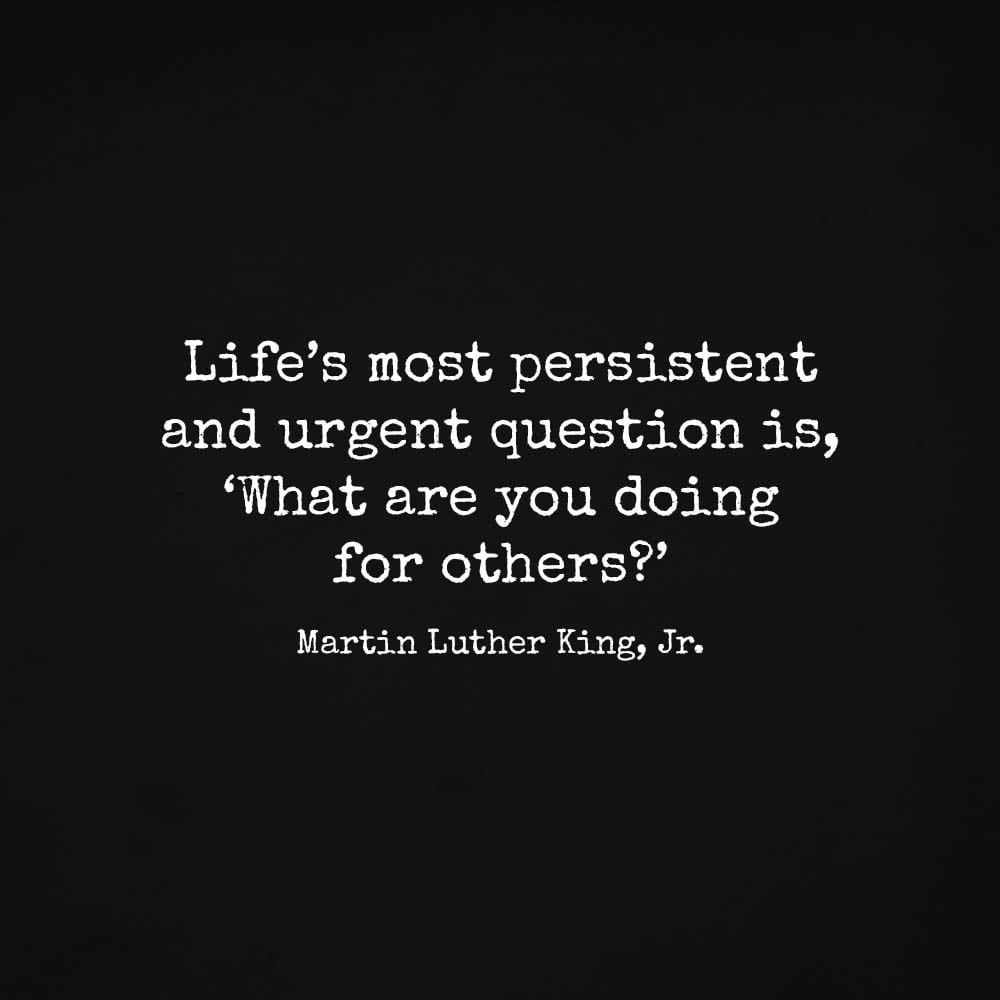
14.Let no man pull you so low as to hate him. – Martin Luther King, Jr.
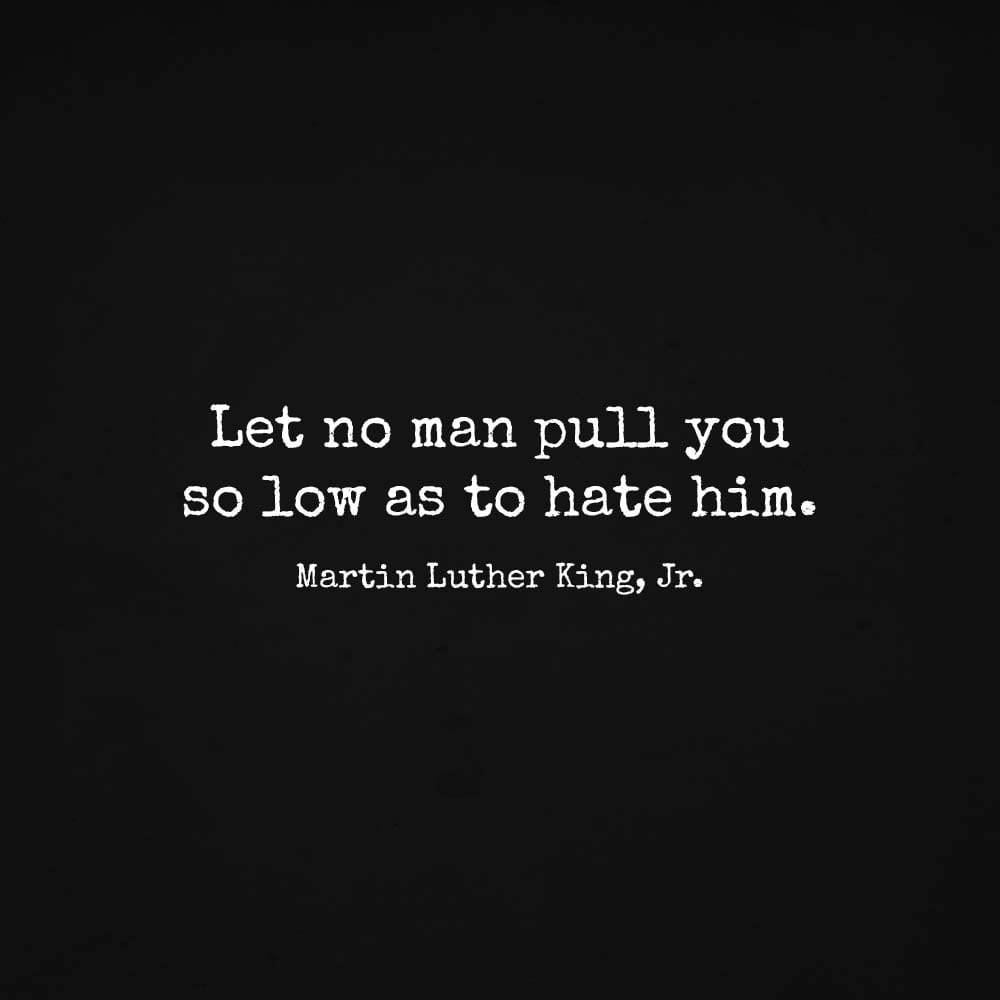
15.Only in the darkness can you see the stars. – Martin Luther King, Jr.
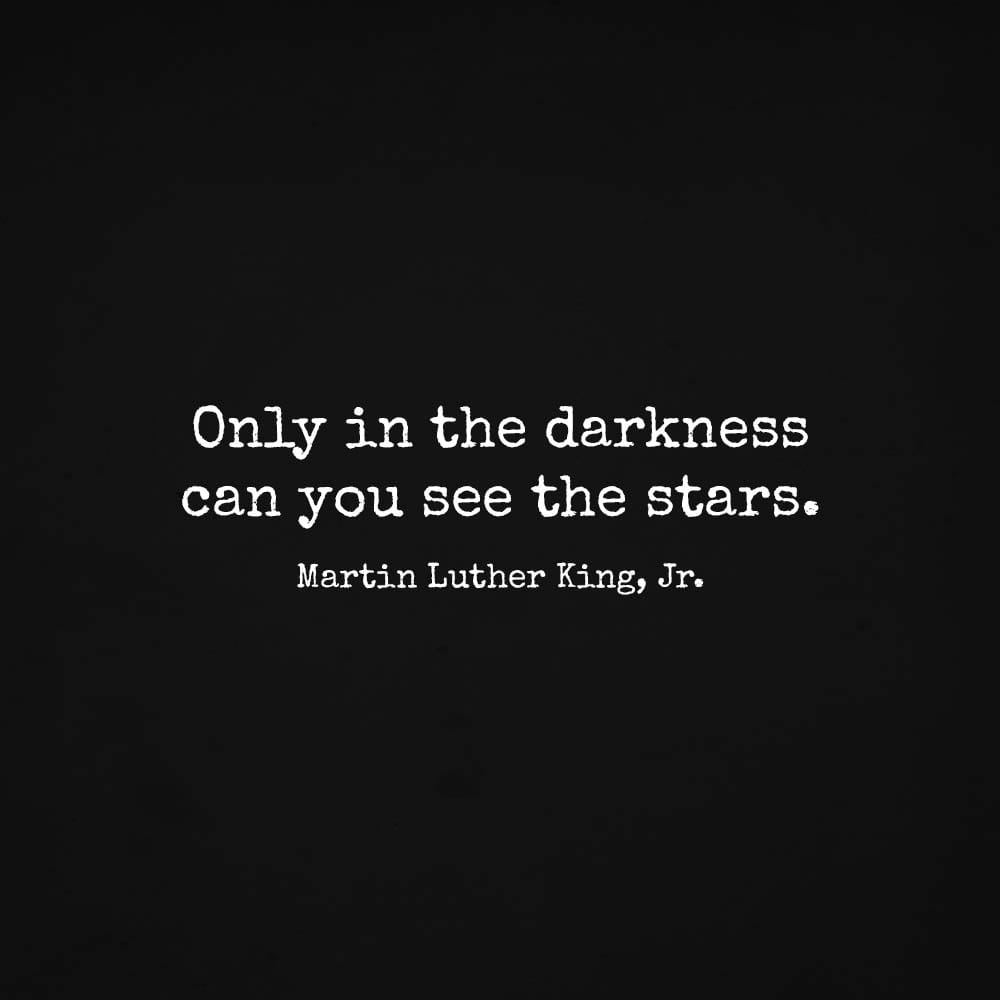
16.We must learn to live together as brothers or perish together as fools. – Martin Luther King, Jr.
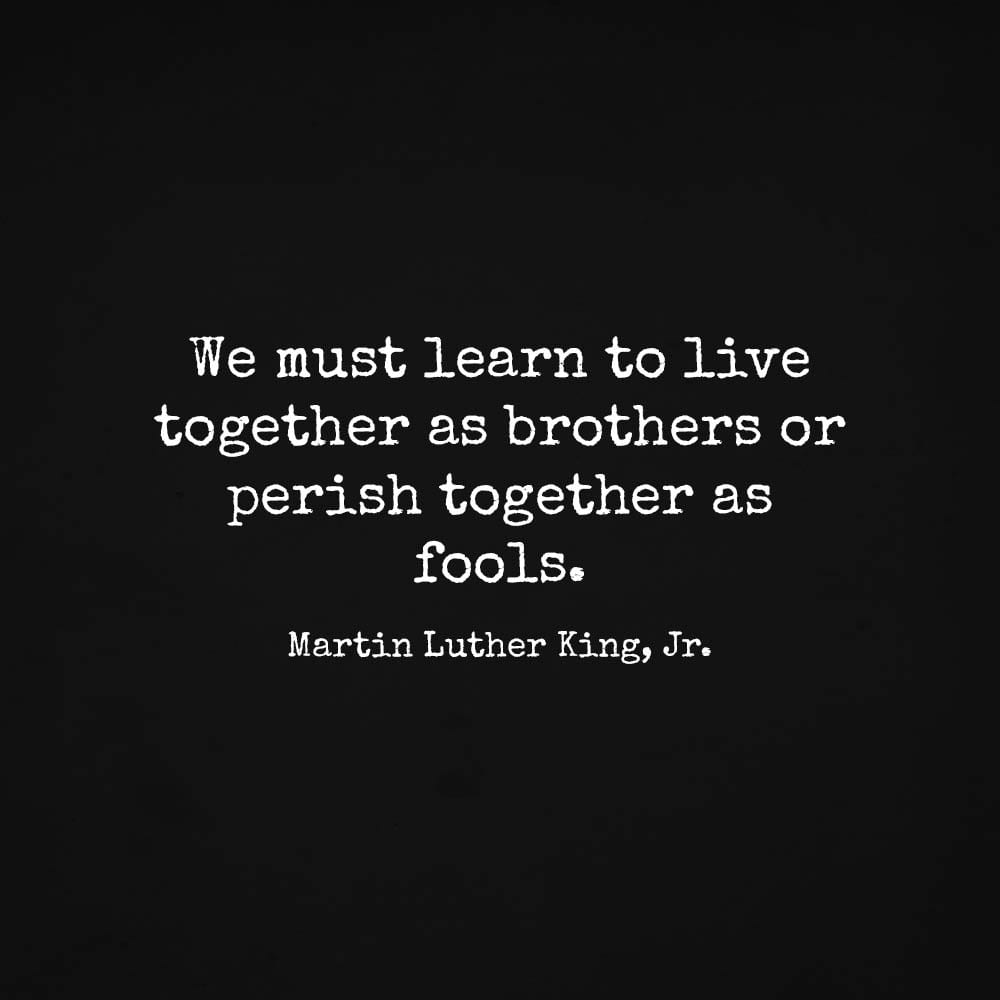
17.Those who are not looking for happiness are the most likely to find it because those who are searching forget that the surest way to be happy is to seek happiness for others. – Martin Luther King, Jr.
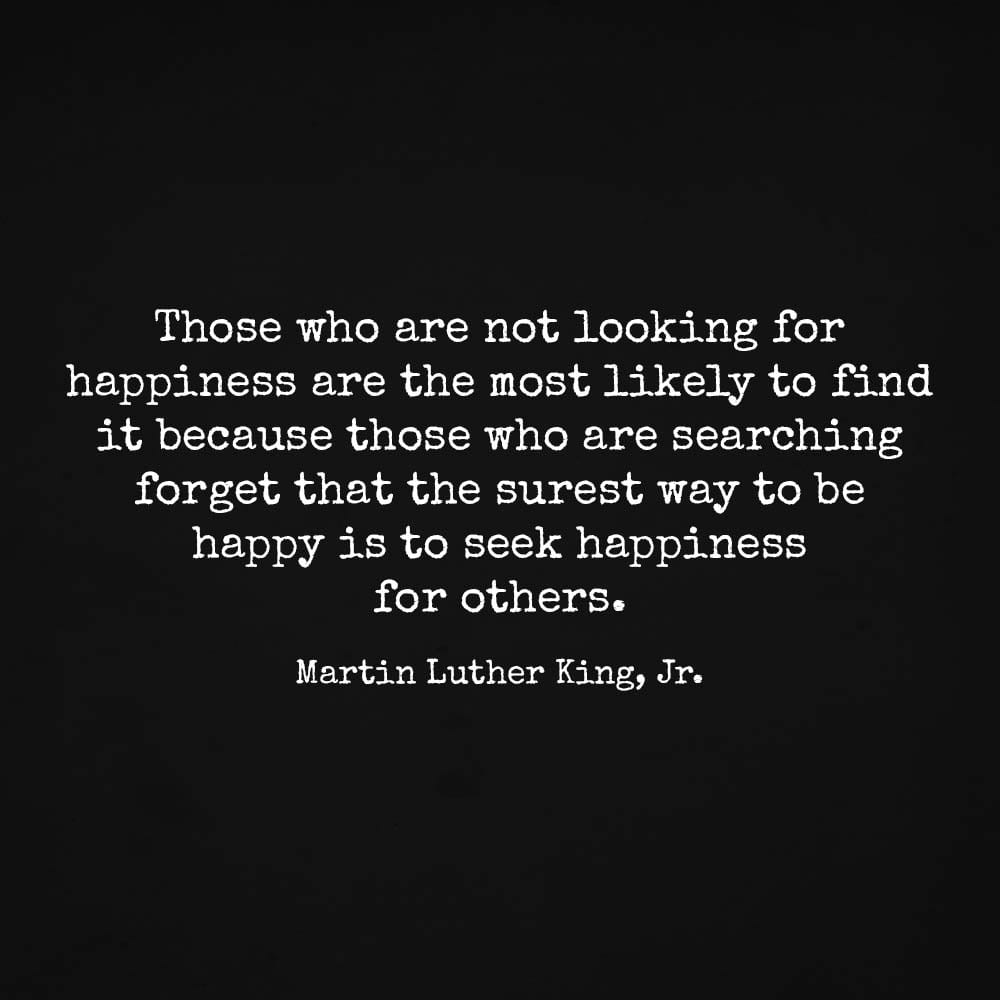
18.We must accept finite disappointment, but never lose infinite hope. – Martin Luther King, Jr.
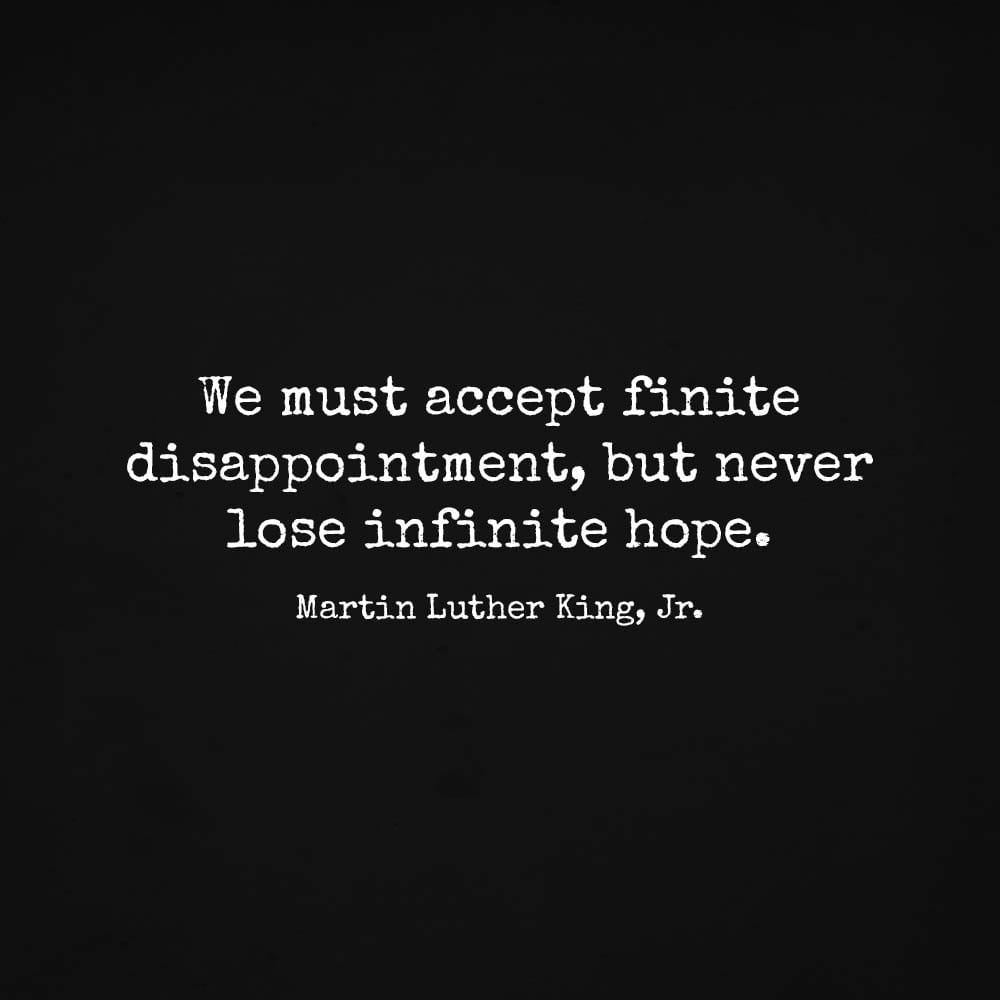
19.Injustice anywhere is a threat to justice everywhere. – Martin Luther King, Jr.
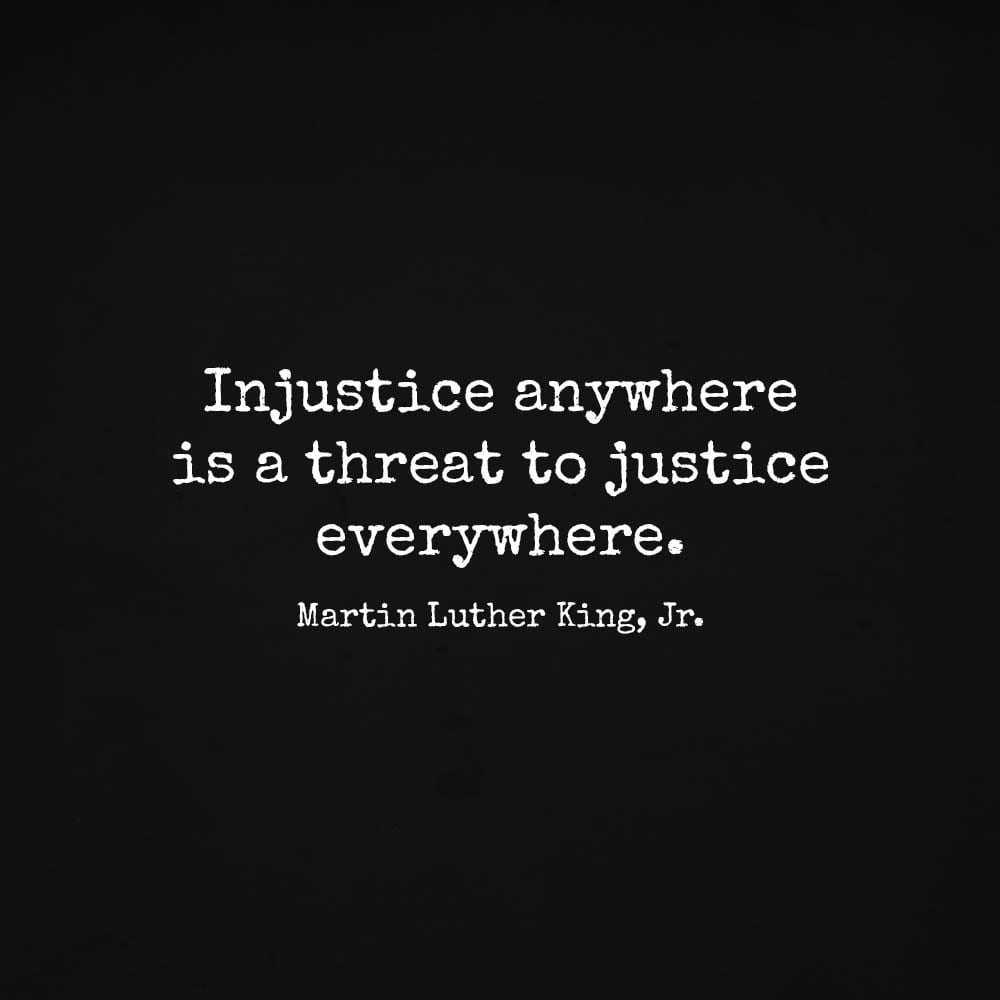
20.Intelligence plus character – that is the goal of true education. – Martin Luther King, Jr.
